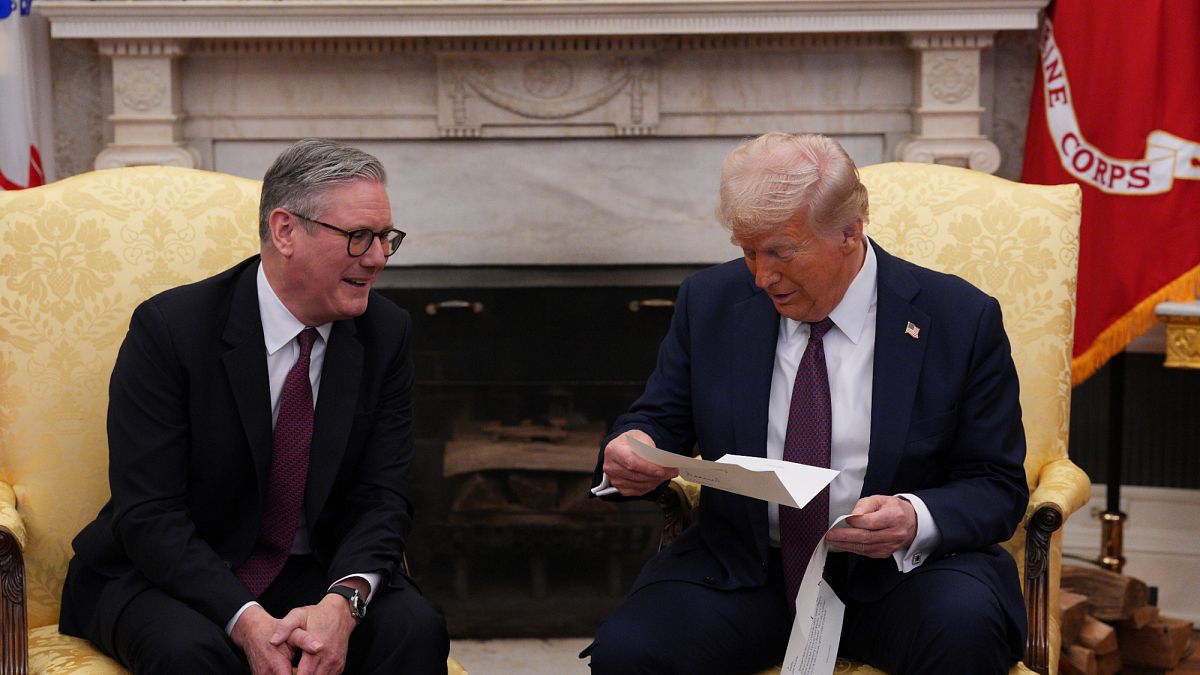

In a promising stride towards global peace and understanding, political leaders from the US, UK, Thailand, and Cambodia have engaged in significant dialogues to defuse tensions in various conflict zones. On one hand, the meeting between UK Prime Minister Keir Starmer and US President Donald Trump focuses on reviving US involvement in the Gaza ceasefire talks, while on the other, an agreement for an immediate ceasefire has been reached between Thailand and Cambodia with Malaysia’s aid.
UK Prime Minister Keir Starmer’s agenda during his visit to Scotland includes urging President Trump to re-engage the United States in the ceasefire negotiations concerning the ongoing crisis in Gaza. Starmer’s plea arises from his deep concern over the humanitarian crisis in the region, with a focus on alleviating the severe suffering of civilians. In particular, there is hope that renewed US involvement might foster a path toward peace between Israel and Hamas, following a pause in negotiations initiated by both the US and Israel. Trump, during his stay at a golf resort, is expected to deliberate on this pressing issue, aiming to leverage American diplomatic influence to mediate peace talks critically needed for the stabilization of Gaza.
Parallelly, a more immediate resolution emerged in Southeast Asia, where Thailand and Cambodia have agreed to an ‘immediate and unconditional’ ceasefire. This development occurred during talks held in Malaysia, mediated by Malaysian Prime Minister Anwar Ibrahim. The Malaysian leader was instrumental in fostering a ‘common understanding’ that helped halt the worst outbreak of violence between Thailand and Cambodia in over a decade. These clashes, which spanned over five days, resulted in more than 30 fatalities and displaced hundreds of thousands, leading to international calls for peace to be swiftly resumed.
The successful negotiations underscore the essential role of international cooperation and mediation in resolving border disputes. Donald Trump’s influence loomed behind the scenes, as he had earlier hinted at economic repercussions if the conflict was not addressed. His stance suggested a belief in the mutual desire for resolution by both Thai and Cambodian leaders, thereby supporting Malaysia’s diplomatic endeavors. This ceasefire marks a positive move in ensuring regional stability and sparing further loss of life.
The diplomatic activities resonate with broader themes of conflict resolution and peacebuilding, highlighting the possibility of collaborative international efforts bringing about tangible changes in regions plagued by long-standing conflicts. The simultaneous dialogues around the Gaza crisis and the Southeast Asian border tensions seem to reflect a renewed commitment to peaceful negotiation and underscore the pivotal role of international diplomacy in addressing complex global challenges.
As these efforts unfold, the global community remains hopeful that continued collaboration will further pave the way for long-lasting peace in these regions, ultimately leading to strengthened international relations and stability. Both Starmer’s plea for US intervention in Gaza and the ceasefire agreement between Thailand and Cambodia symbolize the potential of diplomacy and understanding in overcoming strife and fostering a more harmonious world. Indeed, the commitment to dialogue and peace underscores a shared vision for a future defined not by conflict, but by harmony and cooperation among nations.
Source: {link}
